Interview: "Escape from Mogadishu" director on following "Parasite" towards the Oscars
 Saturday, December 11, 2021 at 2:00PM
Saturday, December 11, 2021 at 2:00PM by Nathaniel R
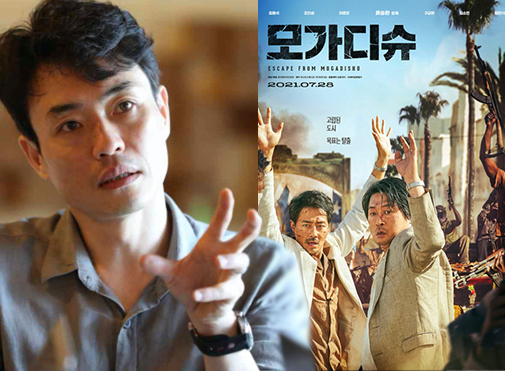
The "Korean Wave" has exploded in the last decade as more and more international audiences eagerly lap up South Korean music, television, and film. The roots of that cultural tidal wave go back to the 1990s and, in film, particularly the early Aughts when a group of young directors took the country by storm with exciting genre films. Some of them like Park Chan Wook and Bong Joon-Ho have gone on to become international superstars but they weren't alone. Ryoo Seung-wan, one of several others to make waves in the Aughts with hits like Die Bad and The Unjust is, in some ways still rising. He recently had the biggest hit of his career and awards nominations at home with the action drama Veteran and, now, a handful of years later, another huge hit and his first Oscar submission. Escape from Mogadishu is a tense action drama and true story. When the Somali Civil War broke out in the 1990s, the North and South Korean embassies were thrust together, against their natural impulses, in a desperate attempt to survive.
We recently had the chance to sit down with Ryoo Seung Wan in Los Angeles as his film was screening for Academy voters. He was in something like a state of joyful disbelief, laughing as he told me "my parents were actually married at a venue called 'The Academy'!". This interview was conducted through a translator and has been edited and condensed for clarity...
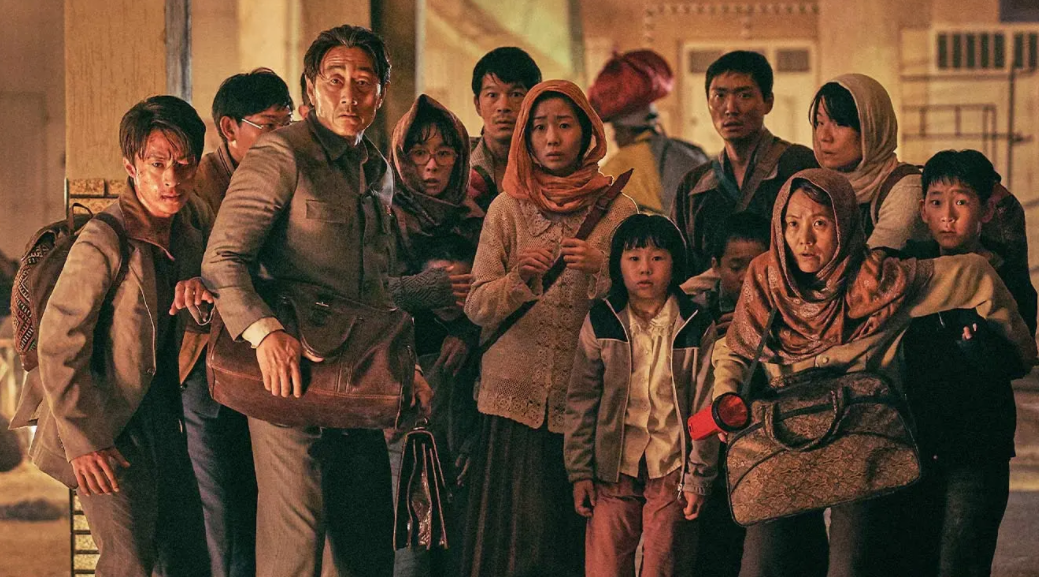
Did you suspect that Escape from Mogadishu was going to be selected to be South Korea's Oscar submission
RYOO SEUNG-WAN: I didn't expect it at all. The Oscars was something I couldn't even imagine. It's fascinating to me that we're actually here in Los Angeles screening this movie.
I know you've made several big action movies but this must have been a beast. There are so many locales, languages, actors from multiple countries.
RYOO SEUNG-WAN: This was the biggest scale production I've ever done. I tried really hard to not focus on the scale since I thought there would be no meaning if I concentrated on the spectacle. What was important for the film was to be in the situations with the characters. I wanted the audience to be able to feel their horror and suspense throughout. In that way there wasn't any particular difference in shooting a scene where people are sitting around a table or in the war zone.
Is that because you're trying to zero in on the emotions?
That's right. The things that you see oonscreen that are "spectacles" -- those are easy because they are visual. You can just light another fire, you can add wind, bring in more extras, all these things you can see with your eyes. But the most important thing is depicting things you can't see but feel and I needed to make sure the balance was right.
Still the big action setpiece must have been daunting. It's so complicated with the geography, stunts, crowds.
From the moment we have the script we have a plan already set for the action sequences. All of my demands for action sequences are written out extremely extensively before we're even filming. So people think reading my script is boring [Laughs] I work with an action coordinator and work on the visual designs so that we can touch the audiences heart, too.
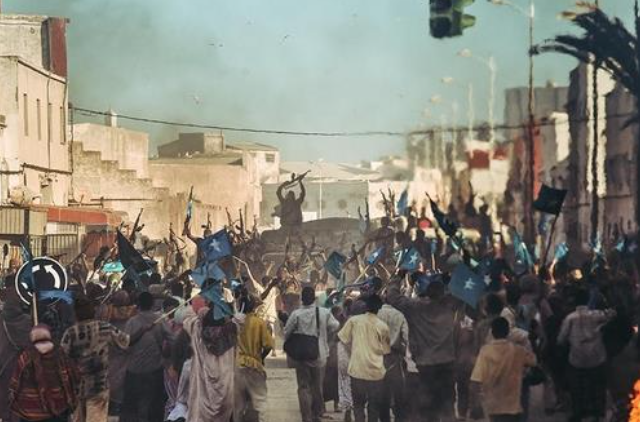
Do you storyboard?
Very detailed storyboards. And then after the location hunting we revise all the plans. Before we even begin shooting we have an animatic to depict those sequences.
Your cast is really strong. How did you choose them?
The main stars I've either already worked with in the past or their acting ability has been proven in other films. But one of the biggest tasks for my assistant director was online auditions for a lot of the foreign roles and then we coached them extensively.
This is a very intense story but I imagine it's even more politically charged for Koreans watching it.
Yes, knowing Korean history will change how you receive the film. The biggest difference I think is that audiences in Korea responded very differently when the Somali mob puts down the soldiers. For Korean audiences [who are more familiar with the story] they are reminded of the 1990s and the president at the time, attacking and shooting at civilians.
The other thing is that North and South Korea... they were one people and now they're two nations. These two diplomats split by civil war are then caught by another civil war. So it's a big irony.
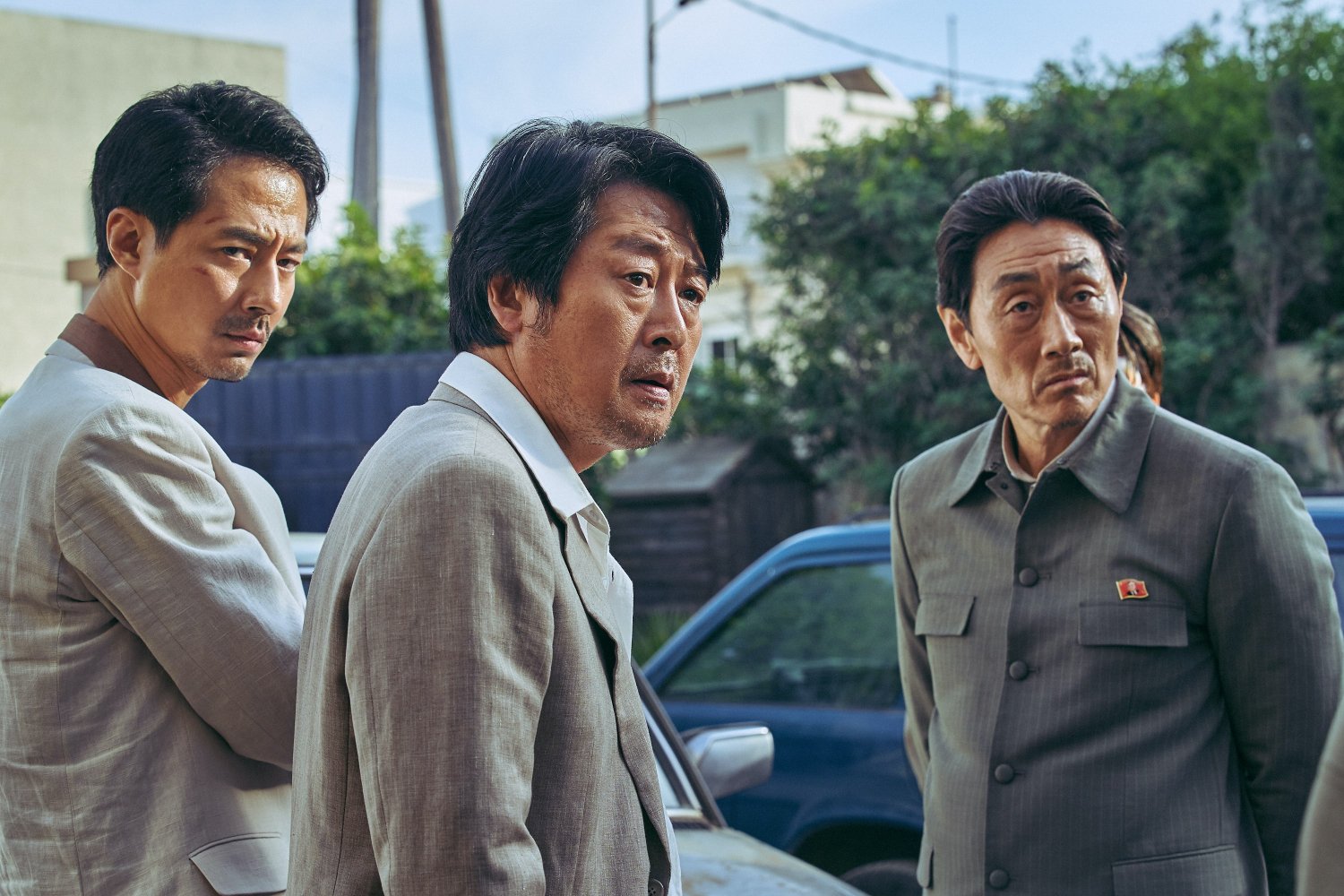
I have to tell you this comes through loud and clear even for this American. I love the overhead shot of the diplomats separating and not even looking at each other.
Even now, to this day, North and South Korean are trained and educated to think of the other as the enemy. In this film you see that they're not permitted to engage with each other as it would lead to punishment. It really doesn't make sense.
Korean film and television is getting more popular internationally all the time. How has that felt from your perspective.
I can definitely feel that over the past couple of years global audiences are really enjoying Korean culture. It's very exciting. Before audiences that watched Korean entertainment were very niche but now general audiences are starting to be there. Of course it's not to the extent that Korean cinema shakes up the box office in the US. but there are more audiences willing to watch subtitled films. So from the perspective of a filmmaker that's a very big chance.
I know you're friends with Park Chan-wook but given the growth of your industry, how tight knit is the filmmaking community now?
I debuted in 2000 and for about ten years all the directors knew each other. And all the actors were close as well! There's a big tradition in Korea of visiting each others sets. Now people are sending coffee trucks and food trucks to each other instead to show support. Since 2010 the industry has grown so exponentially that it's hard to know everyone.
Were you watching the Oscars when Parasite won?
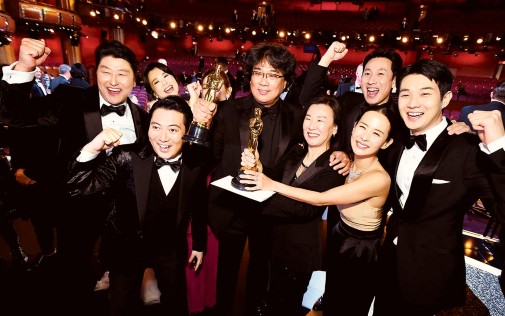
I was actually filming this movie in Morocco at the time. It was early in the morning at our hotel -- where the crew was all staying -- and Parasite kept winning. When Bong won Best Director, there were screams throughout our entire hotel. For the next day of filming everyone was very tired from watching the Oscars but in such a good mood!
That's great.
After Bong won Best Director I sent him a text. "What is this?! I think something is really wrong here". I'm sure he was already at an afterparty but he responded immediately. He said "This was not what I intended!" [Laughter]

Escape from Mogadishu is available to rent on Amazon and other video services.
 Action,
Action,  Africa,
Africa,  Asian cinema,
Asian cinema,  Escape from Mogadishu,
Escape from Mogadishu,  interviews,
interviews,  politics
politics 

